Wikipedia:Wikipedia Signpost/Single/2011-06-20
WMF Board election results; Indian campus ambassadors gear up; Wikimedia UK plans; Malayalam Wikisource CD; brief news
Wikimedia Foundation's Board unchanged after elections
-
Ting Chen (Wing)
-
Samuel Klein (Sj)
-
Kat Walsh (mindspillage)
The Election Committee has announced the results of the 2011 Board Elections (determining three of the ten Trustees, see also the recent Signpost op-ed). In the Schulze method voting, the three incumbents came out on top of the 19 candidates, meaning that the Board remains unchanged:
- Ting Chen (Wing), currently the Chair of the Board, an electrical engineering graduate and IT specialist located in Germany;
- Samuel Klein (Sj), currently Secretary to the Board, who studied physics at Harvard and whose professional life involves "fostering education and offline access to knowledge"; and
- Kat Walsh (mindspillage), a researcher in copyright, patent, and internet policy, a patent agent, and recently a technology policy analyst for the American Library Association.
These results were certified by the Board of Trustees, and the positions will be effective until the middle of 2013. A total of 3495 votes were cast, of which 71 were struck. A post mortem, including feedback from committee members and others, covers matters such as communication, candidate requirements, suffrage, and the electoral process.
Campus Ambassador Program rolls out in Pune
A team from the Wikimedia Foundation (Frank Schulenburg and Annie Lin), two Foundation Fellows (PJ Tabit & Srikeit Tadepalli), an advisory board member of the US Public Policy Initiative (Professor Bob Cummings), and India National Programs' Hisham Mundol visited Pune, the eighth-largest metropolis in India, for three weeks to roll out the Wikipedia India Education Program. A full two-day workshop was conducted for 14 of the 22 campus ambassadors selected in India. An important aspect of the training (see photographs) was the involvement of the local Wikimedian community in specific sessions, and the inclusion of open-house discussions on Wikimedia and Wikipedia, led by User:AshLin, Mandar Kulkarni and Sudhanwa Jogalekar from Pune, Pradeep Mohandas from Mumbai, and Tinu Cherian from Bangalore.

There was debate on how rapid integration into the community can be catalysed by inviting campus ambassadors to join community meet-ups as well as mailing lists, Facebook pages, and twitter feeds. The importance of the local press was stressed in getting local coverage in Indian languages. Given the media consumption habits of students, ambassadors were invited to think about how to forge links with radio and television stations, and of organising photo opportunities. Several newspapers reported very positively on the program – The Hindu, Sakal, Indian Express Times of India and once more in The Hindu. The new Wikipedia campus ambassadors were invited to attend the 14th Pune Wikimeetup to interact with the Pune Wikipedian community.
Wikimedia UK discusses strategy and professionalization, seeks wildlife ambassador
In a two-day face-to-face weekend meeting on 11 and 12 June (Shaping the future of Wikimedia UK), Wikimedia UK board members made strategic decisions about the future of the chapter. As reported in the chapter's blog, the Board decided to go ahead with plans to recruit full-time staff. Currently, it is looking for a Chapter Manager to lead the organisation and work with the board of directors on strategy, partnerships, and fundraising; and an office manager, who will deal with membership, finance, and other administrative tasks (a part-time Office Manager had already been hired on an interim basis last year, as the chapter's first paid employee, see Signpost coverage: "Wikimedia UK appoints 'Office Manager'"). A professional recruitment agency has been engaged to select from a wide field of qualified candidates (job descriptions and budget).
In related news, Wikimedia UK and ARKive will collaborate on a project to improve Wikipedia's coverage of threatened species. ARKive is an initiative of the charity Wildscreen that aims to promote the protection of threatened species using the emotive power of wildlife films and photographs. The "Wikipedia Outreach Ambassador", yet to be recruited, will involve a fixed-period in-residence role for a volunteer who will use deskspace at ARKive's offices in Bristol, with travel and subsistence supported by the chapter. The ambassador's role will require both onwiki activity and involvement in the wider community through online and offline events.

Malayalam Wikisource CD
As already mentioned in last week's "News and notes", the Malayalam Wikimedia community released a Malayalam Wikisource CD with a selection of books from Malayalam Wikisource and art from Wikimedia Commons. This is the second Wiki offline edition from the Malayalam community after last year's Malayalam Wikipedia CD. At the 4th annual Malayalam Wikimedia Meetup in Kannur, Kerala, Hisham Mundol, India National Programs, released the Wikisource CD by presenting it to the youngest Malayalam Wiki contributor (seven-year-old Shanmugham Sai). The project co-ordinators, Shiju Alex wrote about the overall process and release and Santosh Thottingal shared a detailed description of the technical steps in the making of the CD. The CD can also be downloaded as an .iso image, torrent or even browsed online. The project considered as the largest digital archive in Malayalam language, the iso image download witnessed over 46,000 hits in just over a week of the release.
In brief
- Fundraiser summit: Several chapters met with WMF staff in Vienna to plan the Fundraiser 2011. The summit highlighted the different approaches and experiences of the Wikimedia entities as well as the practical problems. Especially younger chapters had faced difficult national campaigns and technical implementations last year. Meeting notes were taken using Etherpad. The event was hosted by Wikimedia Austria, whose chair User:Kulac told the Signpost that it had been the chapter's "meeting debut, hopefully successful for all participants, and also offering something cultural besides the productive activities".
- Further data from editor survey: Following the publication of highlight results from its recent survey of Wikipedia editors (see last week's "news and notes"), the WMF has released a "Top-line survey data summary" contained the percentage of responses for each question, based on 5,073 respondents. For example, the most frequent replies to the question "In which country do you live?" were the US (20%), Germany (12%) and Russia (7%), which appear to align better with other existing data than the 2009 UNU-MERIT study of Wikipedians, where Russia and Russian speakers had shown as the largest language and country groups, raising questions about possible bias.
- Kazakh society supports Wikipedia: On Foundation-l, Wikimedia chair Ting Chen reported from a recent trip to Almaty, Kazakhstan, where Wikimedia volunteers "had started to organize a nationwide movement and had found support in the politics, companies and media. The Kazakh Encyclopedia had decided to put its up-to-date 16-volume encyclopedia under a free licence. [See also meta:The letter from Kazakh Encyclopedia to Wikimedia Foundation, Inc. ] There are initiatives in the parliament to make the copyright law more clear and supportive in respect of free-licenses, and the biggest national welfare fund 'Samruk-Kazyna' had decided to fund activities to build up the Kazakh Wikipedia. Our volunteers there are going to start ambassador programs in the universities in Almaty and had set the very ambitious goal to expand the Kazakh Wikipedia into 200k articles until December 16th, the 20th independance day of the Republic Kazakhstan, not by using bots, but by writing and translating qualified articles. That would mean about ten fold [the current] article amount".
- Five Wikipedias to be studied in "WikiHistories" summer program: The Foundation's Community Department has announced five summer research fellows (graduate students from the US and the UK) who will "study the historical development and community dynamics" of the Hindi, Spanish, Armenian, Tagalog, and Turkish Wikipedias, following last year's pilot project about the history of the Russian Wikipedia (Signpost coverage).
- New Wikimedia chapter: Wikimedia Chile has been recognized by the Wikimedia Board of Trustees to become the newest Wikimedia chapter.
- WikiConference India 2011: The Wikimedia India Chapter and Wikimedian Community in India jointly began planning for the first WikiConference India in Mumbai to be held between 18–20 November 2011. Meanwhile the Indian chapter announced a membership drive and its Annual General Body meeting on 24 September 2011.
- New Wikimedia Hong Kong Board: Wikimedia Hong Kong announced its new board, on which Rover Wong will serve as the inaugural president, Vincent Tsui the secretary, and Tango Chan (who had become director in September, see Signpost coverage) the treasurer, among other office-bearers.
- Simple language Wikipedias: The Foundation's Language Committee has agreed on new rules concerning the creation of Wikimedia projects in simplified languages, such as the existing Simple English Wikipedia. They will be considered if two criteria are met: The main language must be a "'world language' with many L2 users, and there must be a reliable, published specification of the controlled language to be used." It is expected that the only new project likely to become admitted under the new rules will be a Wikipedia in simple French. Last week, a footnote to a Slate article about "the challenges of designing a search engine for children" described the Simple English Wikipedia as "an extremely kid-helpful site".
- New visualization of recent edits: Ed Summers, a coder at the US Library of Congress, has announced Wikistream, "a little toy webapp that displays updates from the major language wikipedias in real time", useful for demonstrating "just how much Wikipedia is actively edited". It received much praise from posters on the Wiki-research mailing list, including Ward Cunningham who said that having coded similar software himself, "I have to tip my hat to Ed for doing a better job than I ever did and doing it in a way that he makes look effortless", and advised coders to "read this code" (available on GitHub). See also earlier Signpost coverage of Ed Summers' lists of the "most linked websites on the English Wikipedia"
- Three new English Wikipedia administrators. TParis (nom) is a staff sergeant in the US Air Force stationed in San Antonio, Texas and a web developer. He will continue to participate in speedy deletion and new-page patrolling. TParis intends to gain experience in articles for deletion and Usernames for attention, and possibly to work backlogs and help out at Wikiquette alerts and requests for page protection. Jimp (nom) intends to edit protected templates and sees himself becoming involved in deletion requests, page protection, and the editing of protected pages. 28bytes (nom) will work in speedy deletion and AIV, closing deletion discussions, cleaning up cut-and-paste moves, and helping to perform history merges when needed. 28bytes has particular interests in video games and rock music. (Information about new admins comes from their RfA or user pages, or from what they tell The Signpost directly.)
Reader comments
Wikipedia could become trusted medical resource; neologism controversy; brief news
Editorial: Wikipedia could become a trusted medical resource
An editorial in BMJ, a highly ranked medical journal, titled "WikiProject Medicine", argued that its Wikipedia articles "could become a trusted resource if it is assisted not shunned". Written by Lyndal Trevena, associate professor for public health at the University of Sydney, the article is a reaction to a viewpoint article by members of WikiProject Medicine that was published in the Journal of Medical Internet Research (Signpost coverage: Medical Wikipedians issue 'Call to Action' to their peers).
After noting Wikipedia's popularity as a source for medical information, the author discusses Wikipedia's article quality assessment system:
| “ | Impressively, of the more than 25 000 medical articles published, all but 304 have been assessed, according to the WikiProject article quality grading system, by one of the 206 group members. [...] Unfortunately, only around 70 articles have been graded as suitable for a “feature article or listing,” [...] Most articles are graded as either incomplete or a “stub,” providing “little meaningful content.” With the exception of a small star given to “feature articles” the grade is publicised only to readers who register for that specific feature [apparently referring to the fact that some assessments are only available on talk pages]. Improving this quality grading process could be a key step towards improving the overall quality of the information. | ” |
Trevena acknowledges the success of Wikipedia's open editing model, mentioning "commitment by trusted administrators and editors" as a key factor in maintaining quality, but warned against COI editing problems in the medical sector:
| “ | [Wikimedia] will have to tackle the tension between promoting a free speaking virtual community of authors that publishes exclusively under pseudonyms and the need to declare conflicts of interest and allow greater transparency for readers. It is currently difficult to detect commercial and other conflicts of interest, although such conflicts are likely in articles where particular treatments are over-represented compared with current clinical practice guidelines. | ” |
She continues by noting the usefulness of Wikipedia's health information for developing countries, but points to the challenge of improving non-English coverage: "129 articles are published on hypertension in English but only six in Bahasa Indonesian. Chinese contributions are non-existent, which is a pity given the burden of disease from hypertension in that nation." (Last year, Google.org started a – now concluded – pilot project to address this issue by software-assisted translations; see Signpost coverage: "Major Google–Wikipedia translation project: Health Speaks".)
The article concludes by discussing the already frequent use of Wikipedia by doctors, and states that for evidence-based medicine, "the simplicity and speed of the Wikipedia format is appealing. Clinicians have continually stated that they want simple summaries of evidence rather than lengthy detailed technical items that require access to complex and sometimes expensive databases. If we really want to see the dissemination of evidence based information and facilitate putting evidence into practice, perhaps we need to start writing articles for Wikipedia."
The abstract is available online, and interested readers may purchase one-day access to the full text (which is less than one and a half pages long) for $30.00 in the US, £24.00 in the UK and €32.40 in other European countries.
Explosion of editing related to the santorum neologism noted

In keeping with its tradition of being highly critical of Wikipedia, the British technology news and opinion website The Register writes "The world's Wikifiddlers are obsessed with santorum. Though they can't agree on what that is." The article discusses the heated controversy that has recently sprung up around the article Campaign for "santorum" neologism (current title, but it may soon be moved). Last month, the issue had generated 130 postings on the Wikien-l mailing list alone. In 2003, pundit Dan Savage (known for his relationship and sex advice column Savage Love), in response to former US senator Rick Santorum's conservative statements on homosexuality, proposed to his readers that they invent a new derogatory meaning for the word "santorum". As recently noted by several US media sources, said meaning continues to rank highly in Google search results for the politician's last name, at a time when he is aspiring to become the Republican candidate for the 2012 presidential elections. The debate on Wikipedia centered around whether the Wikipedia article must be considered a de facto part of the campaign by perpetuating this Google ranking, or merely an NPOV description.
In brief
- NARA Wikipedian-in-Residence: The Atlantic described "How Wikipedians-in-Residence Are Opening Up Cultural Institutions", focusing on the example of User:Dominic's stay at the National Archives and Records Administration (NARA) (covered earlier in The Signpost, in a Washington Post interview, by Yahoo! News and in other media).
- The death of expertise continues. Sven Birkets published an article on the Los Angeles Review of Books website titled "The Room and the elephant" which responds to Maria Bustillos' piece "Wikipedia and the death of the expert" (covered in The Signpost on May 23).
- Wales praises Russian president: As reported by Russia Beyond the Headlines, Jimmy Wales has praised Russian president Dmitry Medvedev as "the only world leader who actually understands the Internet", referring to his proposals to reform the country's copyright laws (cf. Signpost coverage: "Russian president pushes for Creative Commons licencing", "Russian president meets with Internet community representatives, including Wikimedia"). Wales contrasted this with French president Nicolas Sarkozy's push for stricter regulation of the Internet, evident at last month's E-G8 Forum in Paris (cf. Signpost coverage: Jimmy Wales attends eG8 summit). He made the remarks on a one-day visit to Russia last week, covered by RIA Novosti, too, which quoted him as saying: "Of course, I never realized how important Wikipedia might be to freedom of speech but, you know, we've taken over the years a very firm stand against censorship of Wikipedia and I am very proud of that."
- Wales on online civility: In a talk about the need for civility in online discourse (held at Georgetown University last week and covered by several online sources [1] [2] [3]), Jimmy Wales outlined how Wikipedia deals successfully with vandalism and trolling. Wales co-presented together with Andrea Weckerle, the founder and president of CiviliNation, a US nonprofit which describes itself as "taking a stand for civil digital discourse", where Wales serves as one of three directors.
- US college professors soften on Wikipedia: According to U.S. News & World Report, "Wikipedia (is) Gradually Accepted in College Classrooms" as "many professors' aversions to the site have softened in the decade since its inception in 2001."
- Wikipedia files: Chicago public radio station WBEZ continued their "Wikipedia files" series – video interviews in which celebrities comment on the Wikipedia article about them – with actress Eve Myles.
- Get a Wikipedia article for your band: A blog posting on CD Baby advised musicians on "How to Create a Wikipedia Page for Your Band/Music", listing five tips including "Don’t Write it Yourself".
- Get a Wikipedia link to your website: A blog about "domain name investing" advised website owners how to "Get Targeted Traffic From Wikipedia": "If you review Wikipedia pages associated with the topic of your website, you can add external links to the bottom of Wikipedia pages".
Reader comments
The Elemental WikiProject



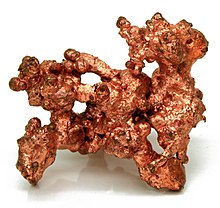

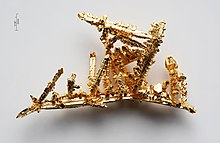

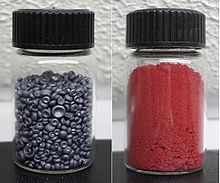
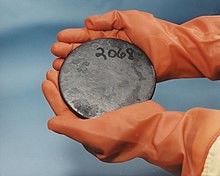
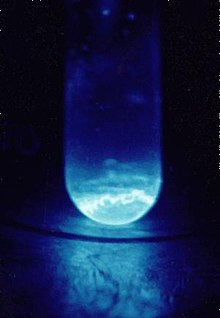

The folks at WikiProject Elements agreed to share their project with us this week. The project's 21 pieces of featured content and 44 good articles are displayed on a color-coded Periodic Table by Quality (PTQ) initially created as an image by Cryptic C62 and turned into a wiki-formatted table by Lanthanum-138. The project strives to achieve a set of short term, mid term, and longer term goals, but their ultimate goal is to turn the PTQ completely blue (all featured articles). The project has been chugging through 16 good article nominations in the past three months, most recently seeing the promotion of Cadmium on June 8. The project is a child of WikiProject Chemistry (interviewed in 2009) and parent of WikiProject Isotopes, although the latter was reduced to a task force in March and is currently being reintegrated into WikiProject Elements. The project contributes to the Chemistry Portal. We had a lively interview with five members of WikiProject Elements:
mav co-founded the project with Bryan Derksen in early 2002 and recalls that "the best element articles back then would be rated as start class today and the vast majority would be considered stubs; most of those just had a single sentence in the form 'X is an element in the periodic table with the symbol Y and atomic number Z.'" He has a degree in biology and states that chemistry was not his strongest subject in college, although he "found high school chemistry very rewarding and easy to learn." He set to work de-stubbing 70 element articles and along the way "got a bit obsessed with adding a table of properties" to beryllium, which led to the creation of the project's infobox and standard article layout. When asked what his favorite element was, he replied: "Asking me to choose a favorite element is like asking a parent to choose a favorite child, so I won't go there. :)"
Stone is a chemist with a Ph.D. in organic chemistry and is working on a Mars project, although he claims he is "not really an expert on chemical elements." He was looking into FAR in June 2008 when he noticed Helium was listed for review. He "wanted to help to save the star on Helium" and after succeeding with the help of "a whole bunch of very enthusiastic Wikipedians," he was drawn into the project. Instead of simply adding his name to the project, Stone felt he needed "to do something to earn the privilege" and started working on "a corner of the periodic table which was neglected." As to his favorite element, "it is hard to name one, only as a whole they are beautiful."
R8R Gtrs is a student planning a career as an economist, although he finds chemistry interesting. He joined WikiProject Elements because the small project had a "clear graphic presentation on how close it is to the ultimate target" and the collaborative environment provided him with an opportunity to improve his English. When asked what his favorite element was, he noted that the "concept of favorite element seems weird to me" but recalled his history with sodium which he and his "mates back in school used to steal and make react with water."
Freywa is a high school student in Singapore who joined the project because he was interested in chemistry and "needed to do something on Wikipedia." His favorite element is vanadium which was named after the Norse goddess Freyja, an inspiration for his username along with the goddess Eywa from Avatar. He hopes to see more Singaporeans becoming regular contributors to Wikipedia and wanted to say: "da-da da-da da-da-da-da-BOOM!"
Lanthanum-138 "found this the most organised project I tried working with" and liked that it was "a smallish project with a clear visual goal." He also works with WikiProject Mathematics and the classical music WikiProjects, but prefers WikiProject Elements because the other projects "were just too large." His username is an isotope of lanthanum.
Have you contributed to any of the project's featured content or the project's good and A-class articles? Did you help develop the project's periodic table by quality tool?
mav: I'm a primary author and nominator of eight FA element articles. Cryptic C62 developed the original periodic table by article quality, which I think has really helped galvanize the project by giving us a visual goal - to turn that periodic table green and then blue.
R8R Gtrs: I've brought fluorine and copernicium to GA status, the former is at FAC. I'm planning more, though — soon submit group 3 element to GAN, and bring copernicium and lutetium to FA later. Not much, but I'm a member only several months.
Stone: I contributed a big chunk to six soon seven FAs and I am the major contributor to 20 of the GAs. It takes too much time to get them to FAs, real life takes its toll. But I try where ever somebody is improving a element to help with credible references and some chemistry. Cryptic C62’s periodic table was the start and it made it easy to follow the progress.
Freywa: I am the reviewer of quite a few GAs (including beryllium and samarium) and the nominator of another (copper, a vital article). I was the initiator of a proposal to include element categories, blocks and the extended periodic table that later got scrapped to avoid intimidation.
Lanthanum-138: For me, similar to Freywa. By the way, the extended periodic table idea is still in the periodic table by quality, but in a very limited form. I do have something with the history of that periodic table by quality: I turned it into a wiki-formatted table (WP:ELEM/PTQ). Fortunately, this has not supplanted the original image table. I'm not exactly a fan of the FA process - it just takes too long, but I try to get articles to GA as far as possible. In fact here we have A's below GA's (which I find all right, but not all of us seem to).
The project has been very active in the past three months, adding 16 new good articles and conducting three peer reviews. There are also two good article nominations and one featured article candidate in progress. What caused this burst of activity? What could other projects learn from your project's recent efforts?
mav: I can't claim any credit for the current burst of activity, but re-organization of the project pages by Nergaal, a persistent focus on keeping track of and setting article ratings by Cryptic C62, Nergaal and Stone (among others), and constant article maintenance and expansion by long-time project members like Materialscientist, Stone, and Sbharris (just to name a few from recent changes), have formed a foundation upon which this burst could happen. Interest by GAN reviewers and nominators, such as Freywa and Lanthanum-138 along with focused energy from members like R8R Gtrs to bring articles to that level and beyond were the final missing elements (pun intended). But the main thing other projects should learn is that activity begets more activity; even chemistry geeks are inherently social and gravitate to topic areas where others are working, even if they prefer to work on individual articles alone.
Stone: The creation of several articles in one single edit from user Materialscientist made it easy to get them to GAs. When user mav shows up and lays hand on one of the articles he always aims for a FA. Some new project members showed up and created a lot of enthusiasm for improvement. Another point is that there were several B-Class articles very close to GA status which are now GA. Like always there is not a single cause but a bunch.
The project classifies articles by importance. How are these importance ratings determined? What makes one element more important than another?
Freywa: The importance ratings are determined by how frequently the topic of the article is used in the real world. This means, for example, that copper is more important than copernicium because copper is widely used in all aspects of society while copernicium is the subject of only esoteric scientific journals about nuclear physics, not understood by many.
Lanthanum-138: We don't really care much about the importance, though: we just plough ahead and get it to GA and/or FA standard. I'd like to add that these importance standards are not rigid: ununoctium is for some reason at High (probably because it's an FA) while ununhexium is still at Low. I think why we don't care much about importance is that it doesn't show many prospects for improvement. Ununhexium would not go from Low-importance to High-importance unless (suppose) it gets used in the latest Apple product, which isn't likely at all ;-), or it gets to GA/FA, which probably won't happen soon.
R8R Gtrs: Ununoctium is interesting as a noble gas, but a notable exception and maybe not one. In general, the ratings come from higher notability (both social and scientific) and article views. Also, articles that aren't elements usually get lower importance, like a notable nuclide uranium-235.
How difficult has it been to acquire high quality, properly licensed images of elements?
Freywa: It varies greatly. Transition metals are the easiest: Alchemist-hp has made a whole collection of pictures for them, all of them featured pictures. Stable lanthanides, s-block elements and p-block elements are relatively easy to get. It's the elements beyond bismuth that are hardest because of their radioactivity: there have been ruses over the authenticity of the picture for astatine.
Lanthanum-138: I remember when I first started on this, we were using some images from RSC (http://www.rsc.org/chemsoc/visualelements/index.htm) for some of the radioactives. However, they turned out to be fakes (oops!) and down went my thorium picture from them. (With hindsight, something was definitely the matter if the promethium, protactinium and americium pictures all looked pretty much the same.) Then soon after that we had the huge turmoil with Jurii's well-meaning but fake pictures of the radioactives (which ironically weren't used anyway, but what was happening on other wikis was becoming too dangerous). See the details here and here. After that things sort of calmed down a bit, and we had twelve elements missing pictures. Then I started searching stuff on Google Images and getting tip-offs from Nergaal (thanks a lot!) at here, and I uploaded most of those left (Nergaal contributing the rest). Now only promethium and fermium don't have images; any help is obviously appreciated! But please don't fall for compounds of promethium - in fact, that's basically why we don't have a picture yet: everyone uses the oxide or chloride to signify promethium.
When we interviewed WikiProject Chemistry in 2009, Walkerma commented that the Chemistry project is a far less cohesive group than WikiProject Elements. Do you agree? If so, why has your project formed such a strong community?
Freywa: I agree. Our project has formed a really strong community because of the much narrower scope (around 180 actual articles compared to the 4000 mentioned in the WikiProject Chemistry interview) and the continued enthusiasm of the participants. This leads to a strong motivation to improve exact articles to their highest calibre than improve a lot of articles to a decent level.
mav: Smaller projects and task forces inside larger projects give participants the ability to feel their contribution is really meaningful to that project or task force. Having a high profile set of articles certainly doesn't hurt, nor does having a nifty way to display progress on improving that set of articles.
Stone: I know both groups. In the chemistry project even the smallest niche to live in is several tens of articles. For example if you do all chemical reactions it might be the case that you never interact with the Wikipedian doing the organofluorine chemistry. Interaction means team building and this is complicated if it only happens at the project page. So working together on an article you learn fast what the people are like.
Lanthanum-138: Here we really have enthusiastic editors who keep working on a specific article, and there really doesn't seem to be much burnout or loss of interest. At the same time, if an article is going to possibly lose GA- or FA-status, most of us come and help, so much so that only three articles have ever lost their GA-status and only one has lost their FA-status (ironically that article is periodic table itself), and out of those three former GAs, one of them has since regained its status. Also, on a more positive note, if an article is at GAN or FAC, we all come and help work on it.
WikiProject Elements is one of the few projects that awards unique triple crowns to editors who have created a DYK, substantially contributed to a good article, and contributed a piece of featured content. Should all projects offer rewards like these to their most active contributors? Are there downsides to offering tangible rewards for editing?
Freywa: I am opposed to the idea of offering triple crowns - barnstars are much better at rewarding editors. There isn't any significant downside to rewards for editing, except (I think) the awardee having a slightly decreased activity level after the presentation of the award (resting on laurels).
mav: If those type of awards inspire some editors to work hard to get them, then all the better. But Freywa is correct in that the Triple Crown is self-limiting as far as the individual editor is concerned; I prefer open ended accounting, like the number of successful FAC or GAN nominations.
Stone:The most fulfilling thing to get is that somebody I respect appreciates what I do, with a triple crown or a barnstar or a simple talk page message I do not care. I always try to carry on when somebody likes what I have done.
What are the project's most pressing needs? How can a new contributor help today?
R8R Gtrs: It could be sweet to get rid of that big yellow island on our PTQ on the right side, turning it into green. We also have a list of goals on our main page. But anyway, if a user decides to join, he may work on whatever he/she wants, it's still appreciated. And these aren't just words :)
Freywa: We are in need of free images for elements for which only fair use versions exist (like fluorine), images (whether free or not) of promethium and fermium, and editors who can handle the extreme stress required to work articles to FA status. New contributors can help today by improving the C-class, Start-class and Stub-class articles to B-class.
Lanthanum-138: Improve the articles! They're quite high-profile anyway, so your efforts will not go unnoticed. Just think: if you look at the periodic table by quality's history, you can see the efforts we've made from 2008 to the present. Before, we had a big swath of Start-class articles. Now, that swath is largely B-class. Which reminds me: work on getting articles to GA or FA is always appreciated.
mav: Help make the Internet not suck by improving element articles. Most of our project's articles are high profile and widely read so your efforts will have a large impact on a generation of high school and college students. Help review articles that need feedback at FAC, FAR or peer review. Other than that, focus on improving start and C class articles to B class, which is fairly easy and often more useful to readers compared with the effort needed to get articles ready for GAN and especially FAC.
Stone: Young and fresh editors are always the thing needed most. If you have a lot of people they will pick whatever they like to do and the project will flourish.
Next weeks' Report will be a limited edition still in mint condition which is sure to be highly prized by generations of pannapictagraphists. Until then, collect all our previous issues in the archive.
Reader comments
The best of the week
Featured articles

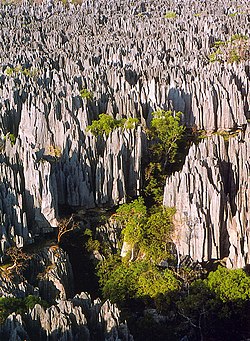

- Anna of East Anglia (nom) (killed in 653 or 654), was the King of East Anglia from the early 640s until his death. (Nominated by Amitchell125)
- Scott Zolak (nom). Nominator Wizardman says in irony, "while the great [US National Football League] quarterbacks remain in article purgatory, I bring a backup to FAC (I promise to bring a more important athlete here next time)".
- John Y. Brown (1835–1904) (nom), a governor of Kentucky, whose reputation as an orator put him in high demand, and whose zealous criticism of the Know Nothing Party attracted death-threats. (Acdixon)
- Mary Anning (nom), a British fossil collector, dealer, and palaeontologist who became known around the world for a number of important finds she made of the Jurassic age, including marine fossil beds at Lyme Regis, where she lived. Her work contributed to the fundamental changes in scientific thinking about prehistoric life and the history of the earth that occurred in the early 19th century, at a time when women were not even allowed to attend meetings of the Royal Geographical Society as guests. (Rusty Cashman)
- James E. Boyd (scientist) (nom), an American physicist, mathematician, and university administrator. (Disavian)
- Rhabdomyolysis (nom), an interesting medical condition that arises from numerous different situations, from drug abuse to being trapped under a collapsed building. It has been a personal project of JFW's since 2007.
Monty Hall problem (nom) was delisted for reasons of prose, referencing, stability, POV and MOS compliance.
Featured lists
Six lists were promoted:
- List of international cricket centuries by Andrew Strauss (nom). (Nominated by Harrias.)
- Grammy Award for Best Short Form Music Video (nom). (Another Believer.)
- List of World Heritage Sites in Madagascar (nom). (Lemurbaby.)
- List of 2002 Winter Olympics medal winners (nom). (Strange Passerby and Courcelles.)
- List of churches preserved by the Churches Conservation Trust in Southeast England (nom). (Peter I. Vardy.)
- Philadelphia Phillies all-time roster (K) (nom). (Killervogel5.)
Featured pictures
Two images were promoted. Medium-sized images can be viewed by clicking on "nom":
- STS-134 International Space Station after undocking (nom; International Space Station), photograph by an STS-134 crew member on the space shuttle Endeavour after the station and shuttle began their post-undocking relative separation (created by NASA).
- Bison skull pile (nom; related article), a photograph from the mid-1870s of a pile of American bison skulls waiting to be ground for fertiliser, restored by User:PawełMM, and modified by User:Chick Bowen after reviewers debated the visual resolution—the issue that had led to the delisting of the image (photographer unknown).
Featured portal
- Portal:New South Wales was delisted because of page layout issues and lack of maintenance.
Reader comments
One case comes to a close; initiator of a new case blocked as sockpuppet
The Arbitration Committee opened one new case, and closed one case. Two cases are currently open.
Open cases
MickMacNee (Week 1)
The case was opened to examine allegations of incivility, unnecessary aggression, battleground behavior, disruptive editing, as well as inappropriate and unnecessary use of the blocking tool. A few days after the case was opened, arbitrator Risker blocked the filer of the case, Chester Markel (talk · contribs), as a sockpuppet of a banned user. Arbitrators noted that this development will not invalidate the case, the case will continue as scheduled, and that the Community might want to make suggestions on how to mitigate its potential influence on the end result of the case. During the week, 9 editors and the now-banned sockpuppet filer submitted 43 kilobytes in on-wiki evidence.
Tree shaping (Week 8)
See earlier Signpost coverage for background about this case. Additional comments were submitted on the workshop proposals that were submitted last week.
Closed cases
Racepacket (Week 8)
This case was opened after allegations of harassment, outing, sockpuppetry, and disruptive editing. The case was to address the behavioral concerns surrounding Racepacket (talk · contribs), the subject of this case, and to review the behavior of all editors involved in the GA processes concerning netball articles. 13 editors, including one recused arbitrator, and a now-banned sockpuppet, submitted evidence on-wiki. Several proposals were submitted in the workshop, including a proposed decision by drafter PhilKnight, all of which received comments from arbitrators, parties, and others. Drafter PhilKnight amended the proposals before submitting them in proposed decision for arbitrators to vote on. Additional proposals were also submitted, several of which were drafted by arbitrator Risker. 12 arbitrators voted on the decision, before the case came to a close yesterday.
- What is the effect of the decision and what does it tell us?
- Involved administrators may have, or may be seen as having, a conflict of interest in disputes they have been a party to or have strong feelings about; in such cases, a user should not be acting as an admin. Generally, involvement is construed very broadly by the Community, to include current or past conflicts with an editor (or editors), and disputes on topics, regardless of the nature, age, or outcome of the dispute.
- Hawkeye7 (talk · contribs) is prohibited from taking any further admin actions with regards to, or at the behest of LauraHale (talk · contribs).
- Hawkeye7 is admonished for blocking editors with whom he has had recent editorial disputes.
- Racepacket (talk · contribs) is banned from editing Wikipedia until 19 June 2012.
- LauraHale and Racepacket are prohibited from interacting with one another in any forum related directly or indirectly to Wikipedia or the Wikimedia Foundation. This includes mailing lists, IRC channels that use the word "wikipedia" or "wikimedia" in their name, or any WMF-hosted project. They are also directed not to seek sanctions on each other either publicly or privately through any means, except through arbitration enforcement processes. Administrators who receive any such requests for sanctions are requested to inform the Committee.
- A user's conduct outside Wikipedia (such as sending private e-mails or commenting in other forums) is generally not subject to Wikipedia policies or sanctions. However, a user who engages in off-wiki conduct which is damaging to the project and its participants may be subject to sanction (e.g; a user whose off-wiki activities directly threaten to damage another user's employment). Any user conduct or comments that another editor could reasonably perceive as harassing (as defined in Wikipedia:Harassment) should be avoided. On occasion, an action or comment by an user may cause an editor to feel harassed, with justification, even if the action or comment was not intended as harassing. In such situations, particularly where the incident is an isolated one, the editor's concern should be sufficiently resolved if the user has discontinued the objected-to behavior (or apologised).
- Posting another user's personal information is harassment (outing), unless that user has voluntarily posted his or her own information, or links to such information, on Wikipedia. Personal information includes legal name, date of birth, identification numbers, home or workplace address, job title and work organisation, telephone number, email address, or other contact information, whether any such information is accurate or not. Posting such information about another editor is an invasion of privacy and is always unacceptable.
- Wikipedia:Good article (GA) assessment is a process by which nominated articles are reviewed and assessed against community-established criteria to ensure that a certain level of quality has been attained. These criteria include NPOV, the quality of article prose and organization, and the appropriate use of reliable sources as references (including the absence of close paraphrasing). Users are encouraged to ensure that the article meets criteria prior to nomination, respond to concerns identified by the reviewer(s), and are required to assume good faith on the part of all participants in the process. Users are discouraged from reviewing articles in which they have had editorial involvement. While the involvement of WikiProjects in the GA process is encouraged, there is no obligation for articles to adhere to WikiProject criteria to achieve GA status.
Reader comments
Engineering department restructured; "break MediaWiki and be reverted"; news in brief
Engineering department restructured
According to Deputy Director of the Wikimedia Foundation Erik Möller, the foundation's Engineering Department will be reorganised with immediate effect. The department, which handles the technical side of the WMF's operations, will now be split into four sub-departments (wikitech-l):
- Technical Operations, led by CT Woo, who will be responsible for "keeping Wikimedia Foundation sites and services running, increasing uptime and performance, supporting code deployments, and ensuring recoverability of data and services".
- Platform Engineering, headed by Robert Lanphier, whose area will be "maintaining and supporting the MediaWiki platform" and related operations.
- Features Engineering, led by acting head Alolita Sharma, who will be responsible for "specific feature projects"
- Mobile and Special Projects, headed by Tomasz Finc, who will manage the mobile platform and "projects with strong overlapping requirements (e.g. offline delivery of Wikimedia content)".
These four departments will be augmented by three special "architect" roles, representing "an additional career path for our distinguished engineers beyond 'become a manager'". Two new roles will therefore be created to accompany the existing position of Lead Software Architect held by newly returned ex-CTO Brion Vibber: Lead Operations Architect (Mark Bergsma) and Lead Platform Architect (Tim Starling). Möller also acknowledged the current positions of Senior Product Manager (held by Howie Fung) and Senior Research Analyst (Dario Taraborelli) to help the Engineering Department to integrate with other stakeholders in the wider movement.
Möller added that he will be taking on the role of overall head of the Engineering Department, at least on a temporary basis. As such, no new CTO will be recruited to replace Danese Cooper, who announced her resignation a fortnight ago (see previous Signpost coverage).
Developers told: "break it and be reverted"
In theory, all changes to the MediaWiki software should be run against an automated test suite, incorporating parser tests, unit tests (tests of individual actions, such as page deletions); since May's Berlin Hackathon, this list has included JavaScript tests. However, in practice MediaWiki has not run as tight a ship as some of its larger counterparts such as Mozilla. For example, before October last year, the system for automating parser tests was considered broken. When that system was replaced in favour of an automated test system known as "CruiseControl" (implemented as part of the phpUnderControl suite), hopes were high that MediaWiki could move to a more rigorous system of speedily reverting any changes that broke the software. Nonetheless, the system immediately suffered from the fact that tests took so long to run that the results were out of date by the time of their publication. In May this year the decision was announced to exclude these long-running tests. Even so, though tests were now quicker, the consistent failure of a number of tests hurt the ideal of a fast revert for all bad code.
On 15 June, developer Chad Horohoe announced that work on reducing the number of permanently failing tests to zero had been successful (wikitech-l mailing list). This has delivered two benefits: firstly, it means that the current bleeding edge code (known as trunk) is free of the many bugs tested for by the suite (check its current status). Secondly, if a test fails in the future, it will be possible to pinpoint the revisions that broke the software, and revert them or otherwise fix the problem within minutes. "From here on out", wrote Horohoe, "I'm going to take the stance that if you break a test, it must be fixed or reverted on sight". Those who follow the MediaWiki development cycle will no doubt hope that this will significantly reduce the time needed to get code from trunk to production, and so help MediaWiki towards a faster release cycle. In a separate announcement, developer User:Krinkle noted that a parallel set of JavaScript-based tests are now also functioning (also wikitech-l).
In brief
Not all fixes may have gone live to WMF sites at the time of writing; some may not be scheduled to go live for many weeks.
- Google's "Safe Browsing" security checks of the Wikipedia domain will now be automatically monitored (bug #28898).
- Editor and blogger Amir Aharoni posted about the need for translating the call for assistance that went out to the Right-to-Left developer community recently.
- WMF developers forewarned of a move that will see any HTTP-based URLs hardcoded into the interface change to pointers that are protocol-insensitive. This will allow users who prefer to use HTTPS (potentially all users in the future) to retrieve both text and images from the secure servers (wikitech-l mailing list).
- A developer for the Okawix project, a Wikipedia reader not currently supported by the Wikimedia Foundation, blogged about the inclusion of the reader in a Linux distribution specially aimed at school-age children. It will ship with a censored version of the French Wikipedia. Its main competitor, Kiwix, is currently preparing to integrate itself with the translatewiki.net localisation service.
- With the resolution of bug #29443, trying to invert the checkbox selection on Special:Undelete will no longer force a page refresh if the admin has JavaScript enabled.
- Developer Jeroen De Dauw noted his release of an updated version of the "Live Translate" extension, which helps multilingual authors quickly machine-translate articles from one language Wikipedia to another before manual polishing. The update allows for Microsoft rather than Google to be used as the translation provider, and comes after news that Google is controversially retiring the API version of its translate service.
- After an RfC (Signpost coverage) revealed consensus, the English Wikipedia's oversight and checkuser group permissions have been made more self-sufficient and less reliant upon the pre-supposition that all oversighters and checkusers are also administrators (bug #28440).
Reader comments






